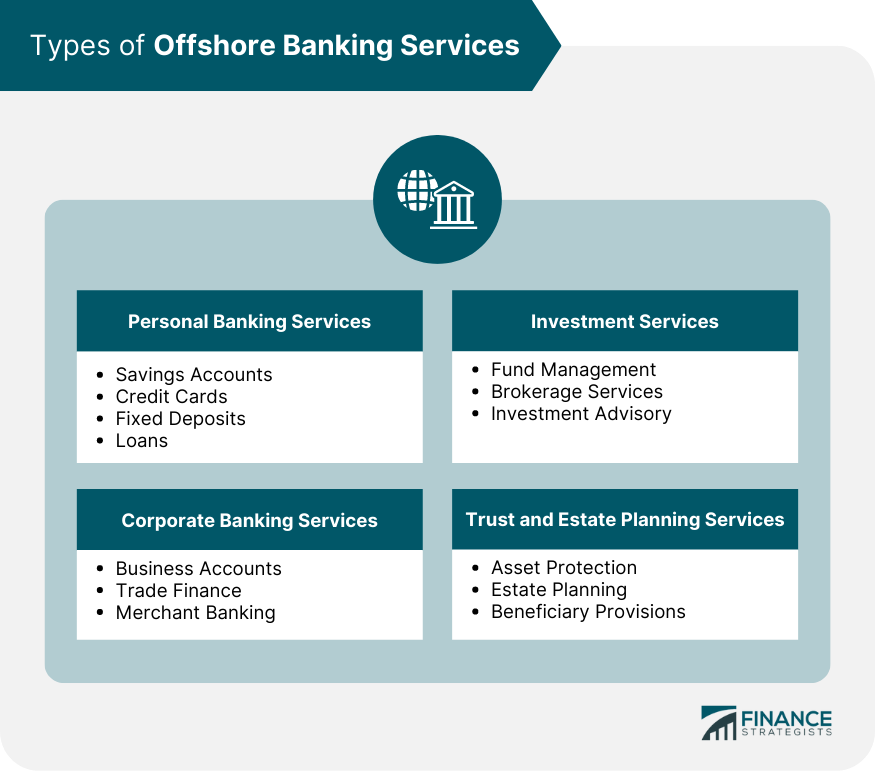Exploring the Providers Offered in Offshore Firm Formations: What You Need to Know
Offshore business formations offer a series of solutions made to assist in organization success while guaranteeing compliance with lawful needs. These solutions can include firm registration, lawful guidance, and arrangements for personal privacy with nominee supervisors. Additionally, factors to consider around tax optimization and possession protection are critical. Understanding these components can considerably impact one's decision-making process. However, the intricacies of picking the right jurisdiction and steering via regulations raise even more inquiries. What should one think about next?
Recognizing Offshore Company Frameworks
What defines an overseas firm structure? An offshore company is normally signed up in a foreign jurisdiction, commonly identified by beneficial regulatory environments and privacy. These structures are designed to offer legal separation in between the company's assets and its proprietors, enabling an array of functional and economic advantages. Offshore business can be developed as numerous types, consisting of limited responsibility firms (LLCs), corporations, or depends on, depending on the regulatory framework of the picked jurisdiction.
Key attributes of these frameworks consist of enhanced privacy, asset defense, and ease of international business deals. In addition, they often need marginal local presence and can promote the monitoring of financial investments throughout boundaries. The selection of a specific offshore jurisdiction can significantly influence the operational capabilities and conformity needs of the firm. On the whole, recognizing the ins and outs of offshore business structures is vital for business owners and financiers seeking to enhance their business approaches.
Tax Advantages of Offshore Business
Offshore companies supply substantial tax advantages that can improve earnings and monetary efficiency for local business owner. One of the key benefits is the possibility for lowered business tax obligation rates, which can be especially less than those in the proprietor's home country. Numerous overseas jurisdictions give tax obligation motivations, such as tax obligation holidays or exceptions on particular types of earnings. Additionally, overseas firms may take advantage of beneficial tax treaties, enabling for the reduction or removal of withholding tax obligations on rewards, aristocracies, and rate of interest. This can cause boosted capital and better reinvestment chances. Furthermore, some overseas entities can operate under a territorial tax system, which only taxes income produced within that territory. This structure can be especially advantageous for organizations taken part in global trade or on-line services, allowing them to optimize their tax obligation commitments while maintaining conformity with international laws. Overall, these tax advantages can significantly contribute to long-term economic success.
Personal Privacy and Discretion Attributes
Exactly how can local business owner secure their delicate info while benefiting from international chances? Offshore company formations offer durable personal privacy and confidentiality attributes that attract business owners looking for discretion (Offshore Company Formations). Lots of territories provide nominee services, allowing people to designate 3rd parties as directors or investors, thus concealing their identities from public documents
Additionally, strict data protection regulations in numerous offshore regions ensure that sensitive information remains personal. Offshore firms often gain from improved banking personal privacy, with guidelines that safeguard client identities and economic transactions.
Furthermore, the usage of private addresses for registered workplaces reduces exposure to public analysis.
These privacy measures enable local business owner to operate with greater self-confidence, understanding their sensitive information is secure. By leveraging these attributes, business owners can concentrate on critical development opportunities without the continuous issue of info direct exposure.
Asset Protection Approaches
While steering with the complexities of worldwide organization, business owners need to prioritize property protection to protect their riches from possible risks. Offshore firm formations offer robust techniques for mitigating exposure to lawful claims, lender activities, and political instability. One effective approach includes establishing a restricted responsibility business (LLC), which divides personal possessions from company responsibilities, thereby providing a guard against lawsuits.
In addition, business owners can utilize counts on to hold assets, ensuring they stay secured from creditors and legal conflicts. Jurisdictions with strong asset security regulations, such as Nevis or the Cook Islands, are frequently favored for their desirable laws. Applying appropriate insurance coverage and diversifying financial investments additionally enhances safety, lessening susceptability to market variations. On the whole, using these approaches within an overseas framework not just advertises riches preservation yet likewise fosters lasting economic stability, allowing business owners to concentrate on growth and innovation without excessive concern over possession exposure.

Opening Offshore Financial Institution Accounts
Opening overseas financial institution accounts includes understanding the numerous account types offered, which can accommodate various monetary requirements. In addition, the documents procedure is vital, as it commonly requires certain types of identification and evidence of home. This summary will certainly clarify the choices and demands for individuals and companies looking for to develop offshore financial relationships.
Account Kind Provided
Offshore checking account come in different kinds, each made to deal with different financial demands and objectives. Individual accounts are customized for individuals looking for personal privacy and possession security, while business accounts facilitate company purchases and administration of company funds. Multi-currency accounts are preferred among international financiers, permitting purchases across various currencies without excessive conversion fees. Additionally, interest-bearing accounts offer passion on deposits, attracting those wanting to expand their properties securely. Some financial institutions likewise supply investment accounts, supplying customers access to different financial investment chances. Each account kind may feature distinctive advantages and functions, allowing clients to select the one that straightens finest with their monetary methods and goals. Recognizing these choices is basic for effective offshore banking.
Needed Documents Process
To successfully open an overseas financial institution account, prospective customers must prepare a set of specific papers that please governing needs. This generally includes a valid key or government-issued recognition to validate identification. Clients are additionally called for to provide proof of residence, such as an utility bill or financial institution declaration, dated within the last three months. Additionally, an in-depth summary of the resource of funds is required to ensure compliance with anti-money laundering guidelines. Some financial institutions may request anchor a company plan or reference letters, especially for corporate accounts. Each jurisdiction may have one-of-a-kind demands; consequently, speaking with a professional in overseas solutions is advisable to identify all paperwork is accurate and full, assisting in a smoother account opening process.
Compliance and Regulative Considerations
Navigating the intricacies of compliance and regulatory considerations is crucial for any kind of entity seeking overseas business formations. Entities should stick to different worldwide and local laws that regulate financial activities, taxes, and company administration. Key regulations commonly include anti-money laundering (AML) regulations, understand your client (KYC) protocols, and coverage requirements to assure openness.
Companies must remain vigilant about changes in legislation that may affect their operational status. Failure to conform can lead to extreme penalties, consisting of penalties or the dissolution of the firm. Involving with financial and lawful experts that specialize in overseas policies can supply essential advice in guiding with these intricacies.
Additionally, recognizing the effects of tax treaties and global arrangements is fundamental for maintaining conformity. Firms should focus on developing durable conformity frameworks to minimize risks and ensure long-lasting sustainability in their offshore endeavors.
Choosing the Right Offshore Territory
How does one determine the most appropriate offshore jurisdiction for business formation? The option of jurisdiction find here is vital and entails numerous factors. First, one need to evaluate the legal structure and laws controling companies in possible territories. Positive tax routines, such as low or zero company tax obligations, are commonly a main factor to consider. Additionally, the political security and online reputation of the territory play significant roles in making sure the security of assets and compliance with global requirements.
The availability of financial services and the simplicity of doing company ought to not be overlooked. A territory offering robust discretion stipulations can also be advantageous for those looking for personal privacy. Examining the costs connected with business formation, upkeep, and prospective lawful costs is essential. By considering these factors, one can make an informed decision, guaranteeing that the chosen offshore territory aligns with their business objectives and functional requirements.

Regularly Asked Concerns
How Long Does the Offshore Firm Formation Process Normally Take?

The overseas business formation procedure typically takes anywhere from a couple of days to numerous weeks. Offshore Company Formations. Aspects affecting this timeline consist of jurisdiction, paperwork completeness, and particular service companies included in the development process
What Are the Initial Costs Entailed in Establishing up an Offshore Business?
The initial prices for establishing an offshore business can vary commonly, commonly incorporating registration costs, legal expenses, and added fees for services like checking account configuration and conformity, often totaling numerous hundred to numerous thousand bucks.
Can People Form Offshore Companies Without Specialist Assistance?
Individuals can practically create overseas firms separately; nevertheless, they commonly experience complex lawful and governing requirements. Offshore Company Formations. Expert help is recommended to browse these difficulties efficiently and ensure conformity with relevant legislations and guidelines
What Files Are Needed for Offshore Company Registration?
The papers needed for overseas firm enrollment generally include identification proof, a thorough company strategy, evidence of address, and, in some jurisdictions, an affirmation of valuable possession and resolutions from supervisors.
Exist Ongoing Upkeep Fees for Offshore Business?
Continuous upkeep charges for offshore firms are typically required to guarantee compliance with neighborhood regulations. These costs may consist of annual revival charges, signed up agent services, and bookkeeping, varying by jurisdiction and specific company framework.
